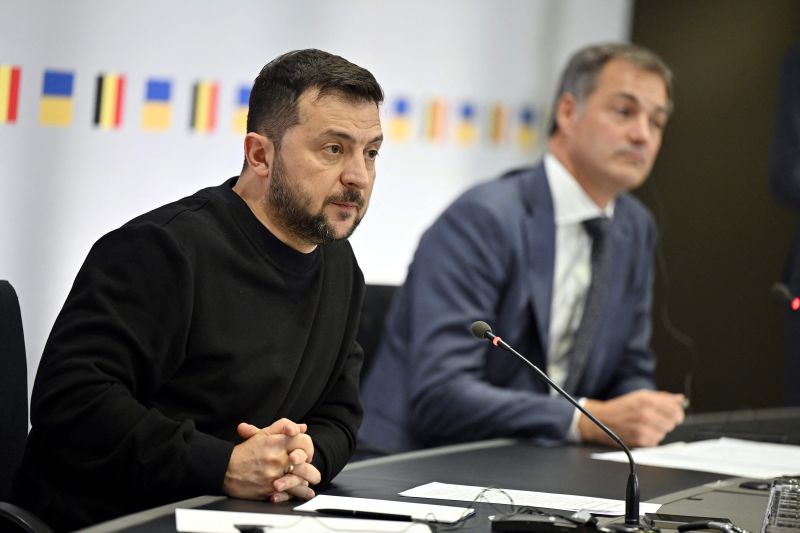Belgium will investigate suspected Russian meddling in European Parliament elections after the country’s intelligence services confirmed “pro-Russian interference networks,” Prime Minister Alexander De Croo said on Friday.
Moscow’s objective “is to help elect more pro-Russian candidates to the European Parliament” in order to weaken the EU’s support for Ukraine, De Croo told reporters.
A recent investigation by Czech authorities uncovered a “pro-Russian influence operation in Europe” involving espionage, said De Croo, which highlighted that Moscow has approached EU members of parliament and even paid some to promote a “Russian agenda.”
“Belgian intelligence services confirmed the existence of pro-Russian interference networks” with activities in several European countries including Belgium, said De Croo, adding that Belgium’s judicial authorities confirmed that Russian interference would be subject to prosecution.
“The cash payments did not take place in Belgium, but the interference does,” De Croo added.
He did not name suspects or give further details of agencies or people alleged to be involved in the influence peddling.
‘A new reality’
Russia has not publicly commented on Belgium’s allegations.
“The goal is very clear: a weakened European support for Ukraine serves Russia on the battlefield, and that is the real aim of what has been uncovered in the last weeks,” he said. “These are very serious concerns and that is why I have taken action… we cannot allow this type of Russian menace in our midst. We need to act and we need to act both on the national level and we also need to act on the EU level.”
He went on to say that Belgium has a responsibility as one of the seats of EU institutions “to uphold that every citizen’s right to a free and safe vote can be maintained,” but that “more tools to fight Russian propaganda and to fight Russian disinformation” are also needed on an “EU level.”
“We are in a new reality and we need to adapt to that new reality,” he said.
Belgium currently holds the presidency of the EU. The next elections to the European Parliament will take place from June 6-9, according to the European Council.
The EU has donated billions to Ukraine in military support since the start of Russia’s invasion in February 2022 and has sanctioned Russian officials. But Viktor Orban – Hungarian Prime Minister and ally of Russian President Vladimir Putin – has held up Kyiv’s membership negotiations with the EU and delayed aid deals.
Far-right and populist parties, some of whom are considered sympathetic to the Kremlin, are expected to make gains at the European Parliament elections. There are concerns that this would influence – and possibly weaken – the EU’s overall support for Ukraine.
European support for Ukraine has become increasingly important as US support for Kyiv has faltered in recent months. European officials regularly discuss how possible it would be for the gap in funding to be plugged and fear what implications a Donald Trump return to the White House might mean.
